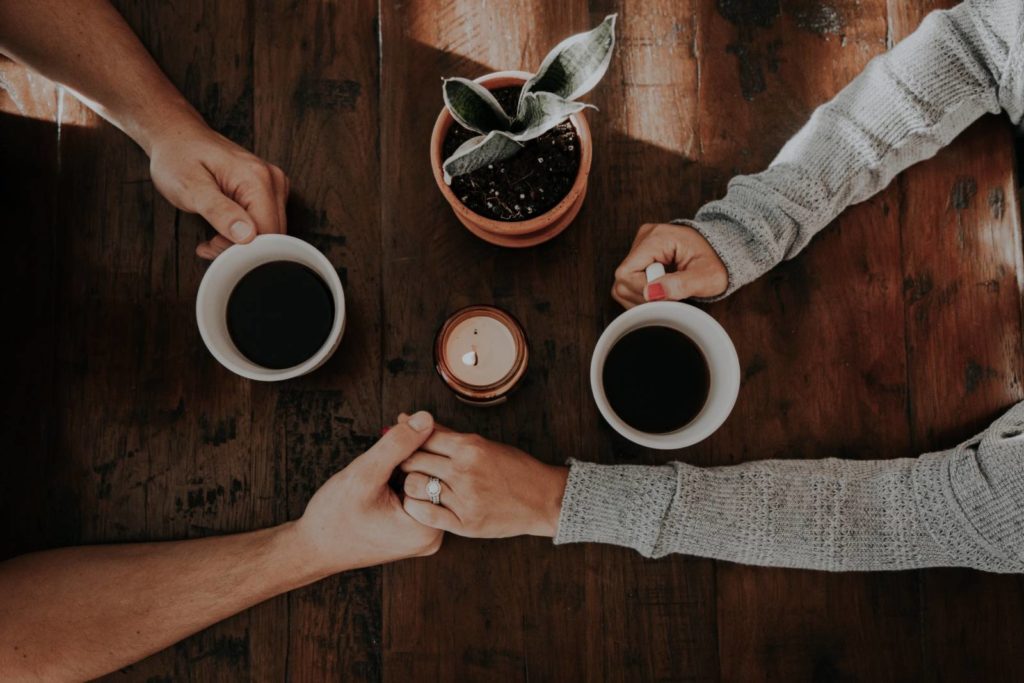
It’s likely obvious that successful relationships require more than 3 skills, however, if we are going to pick the skills (or tools in the tool belt) that would likely provide the best bang for your emotional energy, here are the top 3 that I would recommend. As a therapist that is trained systemically, and helped transform the interpersonal and couple relationships of many – these are the transformational skills I’ve taught again and again. I’ve also used principles that I’ve learned from the shoulders of giants such as the amazing Dr. John Gottman who is so good at knowing data about relationships that he can predict with an approximate 95% accuracy if a relationship will succeed or end in divorce in just 15 minutes. This type of certainty and accuracy in the social sciences is unheard of!
So let’s get into it:
1. Commitment. Commitment isn’t simply going down the aisle and saying “I do” or wearing a ring. It’s the skill of not comparing your partner to imagined or real alternatives when you have a fight or things feel stale. Commitment is learning to understand that most marriages end in divorce (1st marriages at 50%, 2nd at about 70%, and 3rd at 90%). What does this tell us? It’s not just that “if only we’d find the right person out there who would save us” idea that will help our relationships work. It’s that people who struggle with commitment, tend to struggle with this in all their consecutive relationships, and commit to others who struggle with it too. Every partner has their flaws and will drive us bonkers from time-to-time, but ensuring we don’t compare them to that “flawless, never mad at me, constantly exciting” partner that doesn’t exist in our minds that is important. Also, if someone is super abusive chronically, totally leave. There are definitely reasons to leave as well.
2. Listening. We’d all like to think we are good listeners (myself included) but in reality, we’re probably not. Especially when our significant others are yelling at us, upset with us, or trying to explain a grievance/complaint. It’s rare that we say, “tell me more”… and instead say, “Let me tell you how you’re wrong” or “how do I diffuse this as easily as possible/change the subject”? When are partner is hurting, that is the most important time to turn to them, especially when it’s about us. Even if they may be wrong in their interpretation of you… your job is not to convince them of how great you are, it’s to listen and get curious as to why they may see you as a hurtful jerk in that moment (and likely because they are triggered/flooded about something else that has nothing to do with you). Trying to convince them you aren’t a hurtful jerk INSTEAD of listening, is likely to make you seem even more like a hurtful jerk. Listen first. There’s time to talk and get curious about why their frame of reference doesn’t match yours. Self validate yourself in the meantime. You know that you are (mostly) not a hurtful jerk. And once your partner is regulated and feels heard, they know that too.
3. Generosity. This concept has transformed my own life personally and how I see others and is a tough but much needed thing for people to do with those who are closest. Generosity is not about giving gifts, it’s about giving people the benefit of the doubt when they do mess up. It’s about assuming the best first. When my partner comes home late, do I assume that he is a hurtful jerk that doesn’t care about my time or do I assume that he must have an incredibly important project at work and struggles to time manage? Yes, if this repeats we still get to set boundaries and get frustrated at the action, but do we make it about us? Do we make it about the relationship? If someone is truly doing something AT you, you will eventually know. They will tell you or show you in time. However, many people assume people are doing things at them without seeing it as a pattern, or knowing the full story and seeing our partners as a bad person out to get us ultimately ruins our sense of happiness, damages the relationship, and can cause that person to feel judged and unsafe. It’s better we set boundaries, assume the best, and get real about our partners struggles, and do what we need to so that our relationship happiness is not based on our partner having all their stuff together all the time. If it’s something major, it may be a deal breaker. But it’s not worth it to sweat the small stuff, and often your partner is doing the best they can. They’ll feel much safer and open with you if you are generous with them. There you have them, my 3 top important skills for relationship success. If you struggle with these, I’d highly recommend working with a coach or therapist to help you understand why and develop real strategies for changing this in your life. Your happiness and those around you is worth that.
Until next time!
Get connected with Soma Recovery:
Google Business Page: https://g.page/somarecovery?gm
Phone: (316) 201-6047
Address: 700 N Market St STE A
Wichita, KS 67214
Check out some of our reviews:
1. https://goo.gl/maps/L8gARKy86ozrzzYW8
2. https://goo.gl/maps/9ddR5fTzaUU1b9ss9
3. https://goo.gl/maps/UNrawhvbthq9TtjM6
